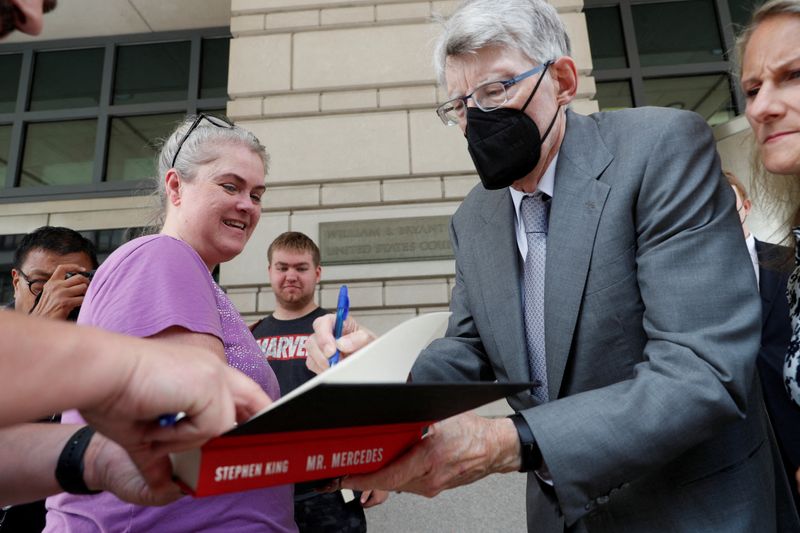By David Shepardson
WASHINGTON (Reuters) -A U.S. judge cited negative impacts on top-selling authors in blocking a planned $2.2 billion merger of Penguin Random House, the world's largest book publisher, and rival Simon & Schuster, according to a written opinion released Monday.
Judge Florence Pan of the U.S. District Court for the District of Columbia said in a brief order issued Oct. 31 that she found the Justice Department had shown the deal may substantially lessen competition "in the market for the U.S. publishing rights to anticipated top-selling books."
Penguin is owned by German media group Bertelsmann SE & Co while Paramount Global owns Simon & Schuster. The publishers and the Justice Department did not immediately provide comment.
Pan said the merged entity would hold 49% of the publishing rights market for anticipated top-selling books, adding the government presented "strong evidence of likely unilateral effects and coordinated effects that would hurt competition."
Pan said those best-selling authors "have fewer outlets that can satisfy their requirements, and therefore are vulnerable to anticompetitive behavior."
Penguin writers include cookbook author Ina Garten and novelists Zadie Smith and Danielle Steele, while Simon & Schuster publishes Stephen King, Jennifer Weiner and Hillary Rodham Clinton, among others.
The government argued against the deal, saying it would lead to less competition for blockbuster books and lower advances for authors who earn $250,000 or more.
Penguin Random House lawyer Daniel Petrocelli argued during the 12-day trial the deal would have "enormous benefits" for readers and authors since the imprints, or brands, owned by the two giants would still compete against each other.
Best-selling author Stephen King, who testified during the three-week trial, took issue with this pledge: "You might as well say you're going to have a husband and wife bidding against each other for the same house. It's kind of ridiculous."
The top five publishers are Penguin Random House, HarperCollins, Macmillan, Simon & Schuster and Hachette, with Walt Disney (NYSE:DIS) Co and Amazon.com Inc (NASDAQ:AMZN) also in the market. HarperCollins is owned by News Corp (NASDAQ:NWSA).

Pan's opinion cited the importance of the industry, quoting John Steinbeck who said, "I guess there are never enough books."
"People want to read," Pan wrote. "And book publishers have the enormous power and responsibility to decide which books - and therefore which ideas and stories - will be made broadly available to the public."